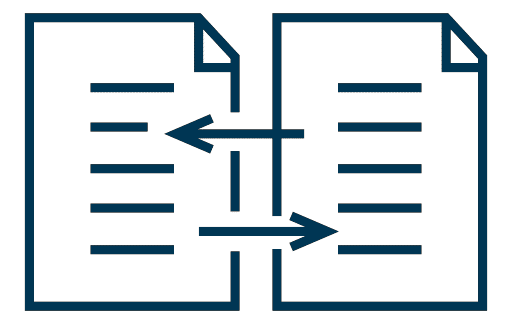Summary In the contemporary business environment, digital procurement is becoming increasingly popular and sought after by businesses around the world. The relationships …
How project management tools are used by businesses to navigate uncertainty
What are the challenges faced by projects frequently?
32% of project managers misinterpret risks as uncertainties without the right usage of project management software. Uncertainty covers events or conditions that are not under the direct control of an entity or stakeholder and cannot be precisely predicted, which could result in unanticipated—often negative—outcomes.
Here are the most common challenges/uncertainties impacting projects:

Market fluctuations
Unforeseeable changes in consumer preferences, commodity costs, and economic situations that might impact demand for a product or service

Technological changes
Innovation can render the project solutions obsolete or redundant, demanding rapid adaptation to incorporate new technologies or processes

Political shifts
Changes in policy and regulation may result in new compliance regulations or modify the economic environment, affecting scope and execution
Grasping and handling these uncertainties is very important for businesses to uphold competitiveness and accomplish strategic goals where change remains constant.
How are projects impacted by uncertainty?
70% of projects fail to deliver what was promised. Uncertainties bring in elements of unpredictability that can impact different parts of project execution and outcomes.
Schedule and cost
Uncertainties might alter the initial project plan and execution because of unforeseen events which may require reallocating time, budget, and resources
Scope
The project’s scope is frequently influenced by market tendencies and stakeholder anticipations, and can cause shifts that require careful management
Quality
The unpredictability in performance levels, resource availability, stakeholder adaptability, or technological advancement can impact the quality of outcomes
Stakeholder engagement
Changes in political, economic, and social pitfalls can divert stakeholder preferences and commitment levels, which might impact project support
Comprehending and understanding unpredictable project elements is important for the success of a project; this helps organisations outline strategies to adjust to changes and retain project viability in an ever-changing environment.
How should project management work in the face of uncertainties?
In project management, uncertainties appear as variables that can significantly change the direction, momentum, and scope of a project.
Planning and strategy
During the early stages of project planning, projects must plan for potential uncertainties and risks. Thus, it is important for project leads to incorporate flexibility and contingency plans to accommodate project hurdles
Risk management
Risks can be identified, anticipated, and prepared for which is why projects require an adaptive and comprehensive approach to be acted on. Project leads can reflect this through collaboration and communication with stakeholders
Resource allocation
You may face difficulties in obtaining the needed resources because availability can be unpredictable and influenced by supply chain disruptions, geopolitical tensions, market circumstances, external shocks, or the environment
Decision-making
In the present business context, uncertainties are high and this tends to cause project indecisiveness or delay the process of making decisions, which could influence the project’s speed, deliverables, quality, and outcome
Risks and uncertainties in a project make it necessary for project managers to be proactive, vigilant, and flexible. Project management methods must be utilised to allow constant re-evaluation of plans and project boundaries. Looking at project uncertainties as opportunities rather than threats can lead to embracing project innovation, creativity and agility.
What are the strategies for handling uncertainty in project management?
Adopt agile approaches
Agile systems promote flexibility, adaptability, and quick response to change, which is crucial in an unsettled environment
Prioritise and set clear objectives
Concentrate on what is crucial and comprehend the main objectives of a project, which can help in decision-making
Create contingency plans
Prepare for uncertainty by making alternate plans, which aids in adjustment to modifications without losing track of the project
Track progress regularly
Use instruments for project management to keep a check on progress and discover deviations at an early stage of the project
Promote communication
Keep a clear and open line of communication with all the stakeholders involved, to handle expectations and inform about changes
Learn continuously
Foster a culture where continuous learning and betterment are encouraged, utilising feedback to enhance processes and methods
By merging these methods with the features of project management software, businesses can enhance their ability to handle intricacies and vagueness in their projects, making sure they stay aligned with project objectives.
Navigate uncertainties with project management tools
For businesses, project management tools are essential as they create a systematic setup to plan, control, and adjust in times of uncertainty. These tools help organisations see uncertainty not as a hurdle but as an important part of their strategic growth.
Project management software encourages an atmosphere where constant learning and quick adaptability become crucial for project success.
Kronos Group presents solutions for businesses to boost their project management skills—with project management consulting made to fit modern project needs. Find out more about how Kronos Group can change your approach to project management and push your business ahead.
Fighting the effects of inflation with sourcing and procurement consultants
Stay up-to-date on the latest insights on procurement, finance, and project management.
Summary Strategic procurement has become a necessity in today’s business world and organisations try to remain competitive. Having the right procurement strategies …
Summary The world of consulting has been undergoing a massive transformation and management consulting jobs are experiencing the impacts of these changes. …
FAQ
When considering project management software, look for tools with robust security features like encryption, two-factor authentication, and access control to protect sensitive project data.
Project management tools can help in resource optimisation and waste reduction, which can lower a company’s carbon footprint and encourage sustainable practices.
Yes, project management software can leverage advanced tools that incorporate artificial intelligence and analytics to predict potential risks by analysing past project data and current trends, helping teams address issues.














